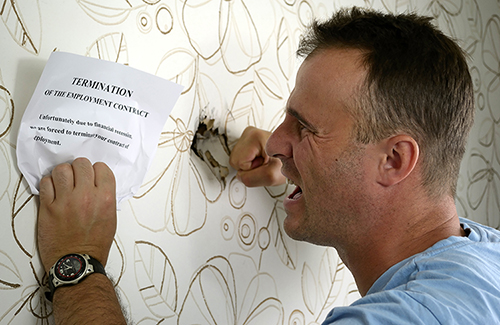It has been said a successful investigative interview is only as good as the person conducting it. As with anything, perfecting a skill comes with practice…the more you do it, the better you get. By definition, the investigative interview is a professional dialog with those close to the situation. A fact-finding mission by way of conversation. In the workplace, the “situation” could be events that impact the organization. Incidences of work-related theft can lead to a significant impact on a company’s profitability. Claims of harassment can lead to a hostile working environment and can also have financial repercussions. But not all events are that level of severity. Some may be minor operational issues and when investigated can identify improvements that need to be made to existing processes and procedures.
Regardless of the level of severity, one of the tools an employer can utilize is the investigative interview. The interview will have a specific purpose or goal. It is an investigatory undertaking that can have its own set of challenges, but if conducted properly can be an effective tool for uncovering the facts. Prior to starting, the following needs to be identified: what is being investigated, who is being investigated, what evidence needs to be collected and who will be interviewed. Once these objectives have been established, the focus can then turn to who will conduct the interview.
The decision on who will conduct the interview is an important first step and should be based on the severity of the incident and potential outcome. For example, if the incident may result in legal action or a change in employment status, an experienced interviewer should be utilized. This could be an individual from legal, human resources, security, or an outside consultant. The key is “experienced” as you only get one chance to do it right.
Once you have decided who will conduct the investigative interview, you can then focus on setting the stage for a successful outcome. This stage of planning includes elements you often have control over and when planned for will help with the success of the interview. Simply sitting down and interviewing a person should not be done without first considering the location, the room, and its environment:
Location of Interview: On-site versus off-site interviews have their own advantages and disadvantages that need to be considered. On-site allows for the interview to be completed without much if any notice. This is beneficial because it allows for unrehearsed answers to be obtained; as the interviewee has no time to formulate or rehearse responses. A downside to the on-site interview is the proximity to the workplace and other employees becoming aware of what is occurring. If these employees are on the interview list, they now have time to prepare and rehearse their answers. Off-site interviews can eliminate this issue but have their own disadvantage due to the logistics involved. Travel time to and from the off-site interview location adds to the employees’ overall time away from the workplace, which could impact business operations. Asking employees to attend off-site meetings may also raise red flags if it is something they normally are not asked to do.
Staging of Room: The room and its environment will play a significant role and is one of the easiest things to control. A small desk with two chairs is appropriate allowing for direct eye contact between the interviewer and interviewee. It is important for the person being interviewed to feel comfortable and not feel like there is a barrier between him/her and the interviewer. The room should be climate controlled; not too hot – not too cold.
Distractions: This would include items that are more visual in nature and may cause an interviewee to lose focus and eye contact with the interviewer. Ideally, the room should be clean and clutter-free. The desk and surrounding area should be clear of items that could be a visual distraction, such as books, pictures, magazines and loose papers. A room with no windows or door panes is recommended. If the room has windows, the blinds should be closed to prevent any visual distractions such as exterior traffic. Often times door panes will not have blinds, in which case the pane should be covered with paper to prevent internal hallway disturbances and provide privacy.
Disruptions: This would include items that are more audible in nature and may cause the interviewee to lose his/her train of thought. For example, a ringing desk phone, alerts from a cellular phone or an email notification sound from a computer could disrupt the interview. If at all possible, the room should be free from such disturbances, otherwise these items should be turned off or muted. To prevent others from interrupting the interview, the room should be properly reserved and a “Do Not Disturb – Room Occupied” sign should be placed on the door.
Preparing for the above factors: location, room, and environment are often some of the easiest items to control when planning for and conducting investigative interviews. Properly taking them into account will result in the interview being more focused and will increase the likelihood for a successful outcome for both experienced and novice interviewers alike.
It is worth noting not all interviews lend themselves to such planning or control of the location, room, and environment. Sometimes the interview may have to take place with little notice and no opportunity to select location or prepare the environment. Examples would be having to complete an interview in a storage room, back office, or breakroom. In these instances, the interviewer must adapt and rely on experience to best set the stage and make the most of their efforts.
This article was created to highlight key factors in setting the stage for a successful investigative interview. For further information regarding general investigations and investigative interviewing, please contact INTEGRITY Security Consulting & Investigations.
Contributing Authors:
Ken Carter | President
Beth Sawinski | Director | Client Relations






